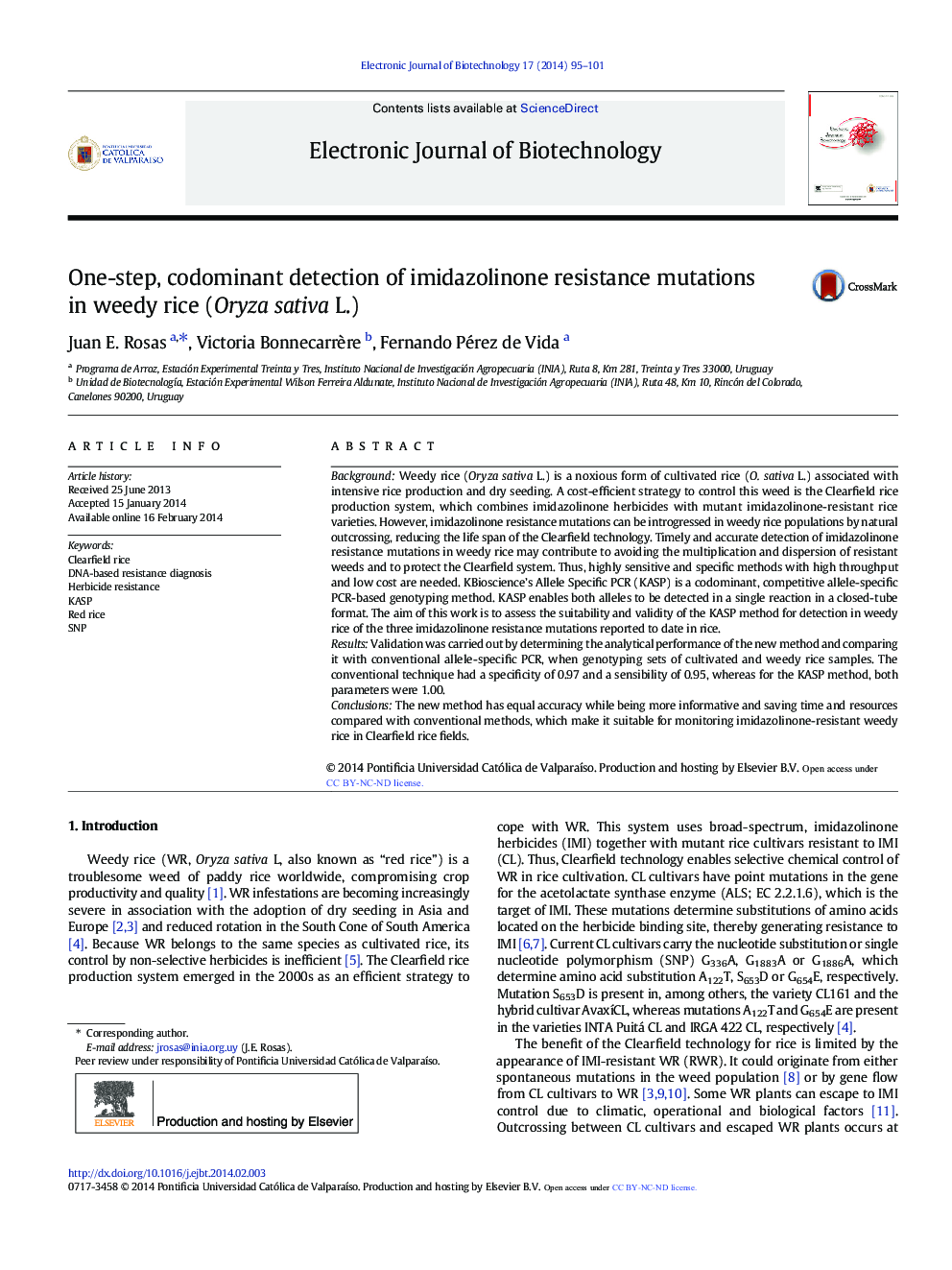| Article ID | Journal | Published Year | Pages | File Type |
|---|---|---|---|---|
| 200846 | Electronic Journal of Biotechnology | 2014 | 7 Pages |
BackgroundWeedy rice (Oryza sativa L.) is a noxious form of cultivated rice (O. sativa L.) associated with intensive rice production and dry seeding. A cost-efficient strategy to control this weed is the Clearfield rice production system, which combines imidazolinone herbicides with mutant imidazolinone-resistant rice varieties. However, imidazolinone resistance mutations can be introgressed in weedy rice populations by natural outcrossing, reducing the life span of the Clearfield technology. Timely and accurate detection of imidazolinone resistance mutations in weedy rice may contribute to avoiding the multiplication and dispersion of resistant weeds and to protect the Clearfield system. Thus, highly sensitive and specific methods with high throughput and low cost are needed. KBioscience’s Allele Specific PCR (KASP) is a codominant, competitive allele-specific PCR-based genotyping method. KASP enables both alleles to be detected in a single reaction in a closed-tube format. The aim of this work is to assess the suitability and validity of the KASP method for detection in weedy rice of the three imidazolinone resistance mutations reported to date in rice.ResultsValidation was carried out by determining the analytical performance of the new method and comparing it with conventional allele-specific PCR, when genotyping sets of cultivated and weedy rice samples. The conventional technique had a specificity of 0.97 and a sensibility of 0.95, whereas for the KASP method, both parameters were 1.00.ConclusionsThe new method has equal accuracy while being more informative and saving time and resources compared with conventional methods, which make it suitable for monitoring imidazolinone-resistant weedy rice in Clearfield rice fields.
